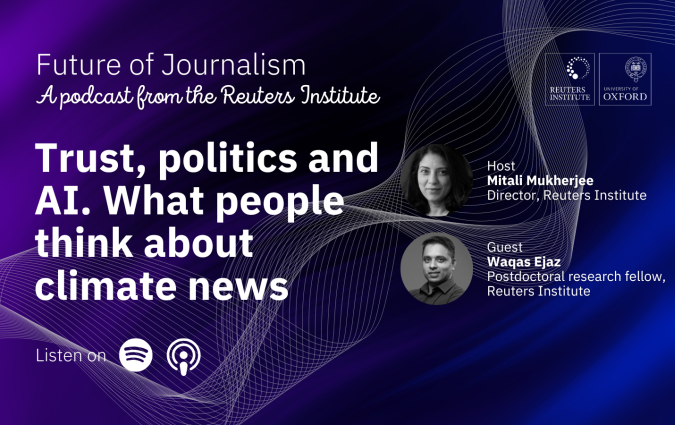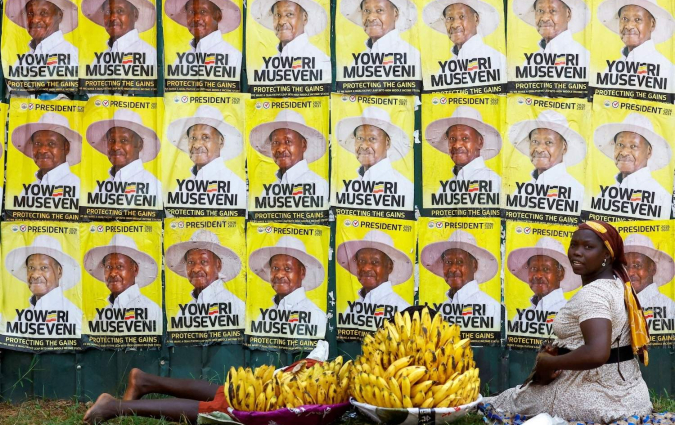How these three Zillennial media leaders approach management in multigenerational newsrooms

Mayu Kato from Vogue, Jasper Wilkins from the BBC and Anna Lagos from WIRED en Español.
As a new generation of talent steps into the newsroom, they often bring with them fresh ideas not only about news coverage, but also about the workplace itself.
Zillennials are a micro-generation that sits in between Millennials and Gen Z and its members have a unique perspective on this front. They remember life before the internet (just about), but they also know how to navigate meme culture and social media codes. They grew up during the tail end of the 2000s hustle-culture that prioritised career success, while also being influenced by their Gen Z peers’ more relaxed approach to work. They hold a dual citizenship of sorts.
As more and more Zillennials move into management position, can their perspective help bridge generational gaps within the newsroom? We spoke with Mayu Kato, Global Manager of Analytics at Vogue; Jasper Wilkins, Senior Producer at the BBC; and Anna Lagos, Editor-in-Chief of WIRED en Español. All of them are Zillennial newsroom managers, so we wanted to hear their thoughts on managing across generations. Here’s what we learned:
1. Gen Z has different priorities from other generations
As Gen Z journalists now make up at least a quarter of the workforce in some countries, newsrooms should pay attention to those if they want to retain younger talent:
- Anna Lagos (A.L.) from WIRED en Español: “What I have noticed, above all, is that Gen Z has a very different perspective compared to [previous generations] regarding the balance between work and private life. The newer generations are much more aware of their life outside of work. The idea of a vocation and dedicating one's life to journalism no longer makes much sense to them.”
- Jasper Wilkins (J.W.) from the BBC: “Gen Z heavily value empathy, ethics, and life balance in the workplace. They want to work somewhere where they care about their work, and where they feel cared for in return. The employee-employer contract feels like much more of a two-way relationship than in the past, and Gen Z aren’t afraid to vote with their feet and move jobs if their needs aren’t being met.”
- Mayu Kato (M.K.) from Vogue: “Many Gen Z and Zillennial journalists have their own platforms via social media, enabling them to self-publish and reach audiences directly. This increased exposure comes with fewer professional boundaries, but also means that opportunities are not limited to traditional work environments. It’s non-stop and personal branding is more important more than ever. I think this is one of the reasons why they tend to prioritise work-life balance, setting boundaries and mental health.”
2. Having multigenerational teams is good for your audience
- A.L. “[Having a multigenerational team] is a challenge, but it's also very enjoyable – I find it very interesting to see how a multigenerational team contributes to everyone's perspective. Most importantly, it enhances our ability to think about different audiences, which is crucial for telling our stories from new angles.”
- J.W.: “It’s incredibly valuable to have a blend of ages across a team. The first-hand insight of younger colleagues paired with the expertise of their older peers is a powerful combination. Our Gen Z team members are usually the first to spot an emerging story or trend on TikTok or Reddit, and are equipped to capitalise on it swiftly by leaning on the editorial experience and technical skills of Millennial and Gen X colleagues.”
- M.K.: “Our audience is becoming more decentralised, with niche content going mainstream and new social platforms emerging continuously. The tone of voice varies by platform, and younger journalists are adept at using new tools to stay current with digital trends. However, the core values of journalism remain unchanged. Experienced journalists provide depth of knowledge, honed insights, historical context, and research skills. Bridging these differences is a significant advantage – but requires conscious effort and mutual respect.”
3. Clear communication is always key, no matter the age-group
- J.W: “Media managers often come up through the ranks as writers, editors or producers themselves. The transition can sometimes be tricky, and being able to delegate and step back from the front line is a vital skill to have. Communicate clearly, get to know your direct reports on a personal level, and be decisive when it counts. Your ability to quickly develop trust and positive relationships matters more the further you progress up the chain, and honing your soft skills will pay off massively.”
- A.L.: “[You have to be] willing to adapt – older colleagues may prefer face-to-face conversations or phone calls, whereas Millennials and Gen Z might feel more comfortable with text messages. I try to adapt to these preferences to ensure that everyone feels valued and heard. Using various communication mediums such as emails, virtual meetings, and messaging apps ensures that the message reaches everyone effectively. Asking questions and actively listening is also important.”
- M.K.: “Remember that a team grows together. Be open to change and new ideas. Clear communication is a key skill. We all value transparency, don’t we?”
4. Zillennials might be particularly well-equipped to bridge the gap
- M.K.: “I grew up reading magazines as a teenager, and am part of likely the last generation to experience the growth of print media firsthand. This interest motivated me to begin my career as a print magazine editor before shifting focus to digital media. When my company underwent digital transformation, my understanding of both work cultures provided valuable insights in shaping our audience strategy, as the two differ significantly.”
- J.W: “Sitting across the ‘generational divide’ can be an advantage depending on the company culture. In more traditional media environments with more hierarchy, it’s proven useful to be able to speak the corporate language with Gen X leadership while making the case for what Gen Z colleagues need.”
- A.L.: “We had a recent project where our team was working on a series of articles that required integrating emerging technological perspectives with a more traditional narrative approach. Younger team members were excited about using videos and social media, while more senior members preferred traditional research and writing methods. Being in the middle allowed me to understand and appreciate both approaches – balancing the new and the established has been a key advantage in managing our newsroom team.”
5. And yet it’s not all about the generational divide:
- J.W.: “My perspective as a Zillennial sitting across the ‘generational divide’ is that it isn’t much of a divide at all. Broadly, I find workplace styles are defined by personality type rather than generation. There’s little correlation between age and traits like confidence, empathy, tone and directness. At the end of the day, I don’t manage age groups, I manage people; as a manager I’m far more interested in the individual needs and personal perspective of my direct reports than their date of birth.”
In every email we send you'll find original reporting, evidence-based insights, online seminars and readings curated from 100s of sources - all in 5 minutes.
- Twice a week
- More than 20,000 people receive it
- Unsubscribe any time
signup block
In every email we send you'll find original reporting, evidence-based insights, online seminars and readings curated from 100s of sources - all in 5 minutes.
- Twice a week
- More than 20,000 people receive it
- Unsubscribe any time







